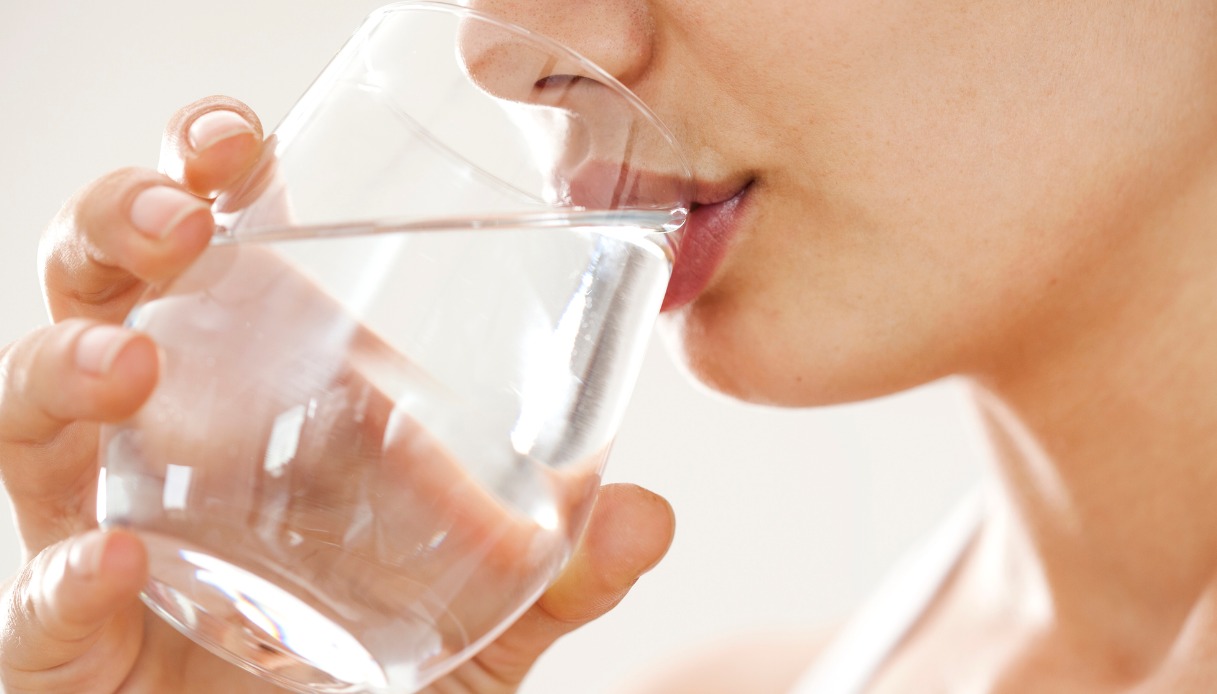L’water is the main constituent of the human body and represents approximately the 60% of body weight in adult males, 50 to 55% in females (characterized by a higher percentage of body fat than males), and up to 75% in a newborn. Drink properly during the day is fundamental and also the European Food Safety Authority (EFSA) has ascertained a cause and effect relationship between the daily intake of water and the maintenance of normal physical and cognitive functions.
But many are still there false beliefs linked to this extraordinary and vital food. From its effects on the line to those on health.
Body weight line and maintenance
For example, let the water do put on weight. Water contains no energy and weight changes due to water ingestion or elimination are momentary and deceptive. And it is not true that drinking a lot of water causes more water retention. This condition, when it is not due to particular pathologies, depends on the sale or from other substances contained in food, not from the amount of water we ingest, the experts of Crea assure in the Guidelines for healthy eating (revision 2018).
Another false myth concerns the cellulite: it is not true that it is necessary to prefer low-mineralized waters over more mineralized waters to maintain the line or “cure cellulite”. The salts contained in the water and the water itself favor the elimination of those contained in excess in the body. In children, in particular, it would be good not to use it exclusively low mineral content waters, but should be alternated with those richer in minerals, suggests the team of experts.
Calcium and kidney stones
There are those who think that the calcium present in the water is not absorbed by our body. False. The ability of the intestine to absorb the football content in water (often present in substantial quantities) is similar to that of calcium contained in milk and dairy products.
Water rich in calcium can promote the formation of kidney stones? No. People predisposed to forming this type of stones – reads the Guidelines – must drink abundantly and repeatedly throughout the day, without fear that the calcium contained in the water may favor the formation of the stones themselves. Indeed, it should be remembered that even mineral waters rich in calcium can constitute a protective factor in this regard.
Furthermore, it is not true that the waters low in sodium are useful for those suffering from hypertension. The sodium contained in the water is in such low quantity that its intake is irrelevant both for health and for aesthetics.
Is carbonated water bad for you?
Absolutely not. Nor water of course sparkling, nor that added with carbon dioxide – reads the document – create health problems, indeed carbon dioxide improves the shelf life of the product. Only when the amount of gas is very high, mild symptoms may occur in individuals who already suffer from gastric and / or intestinal disorders due to temporary pressure in the gastrointestinal tract.
Water with meals yes or no?
Finally, it is not true that water should be drunk outside out of meals. On the contrary, an adequate amount of water (no more than 600-700ml) is useful because it improves the consistency and dilution of the food ingested resulting in a better digestion and absorption.
The topic was also dealt with prof. Pier Luigi Rossi, medical specialist in nutrition sciences in Arezzo, who explained how the affirmation of not drinking water with meals is stripped of any scientific basis because the digestion of nutritional principles (proteins, lipids, carbohydrates) is achieved through enzymes called hydrolases, capable of inserting a molecule of water into proteins, lipids and carbohydrates, creating this reaction: R ” – R ‘+ H2O> digestive enzyme> R’ ‘OH + R’H. Without an adequate volume of water in the intestine this reaction is impaired, so there is no complete digestion of the food ingested. Water is unable to significantly dilute gastric acids. And if there is no adequate volume of water, because it is not drunk before during or after meals, the intestine must pass water from the blood.
The expert’s advice, therefore, is to drink 2 glasses of water before a meal to aid digestion.
– .


